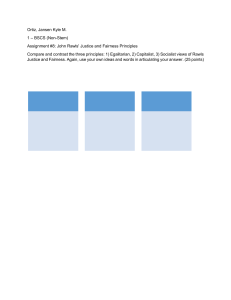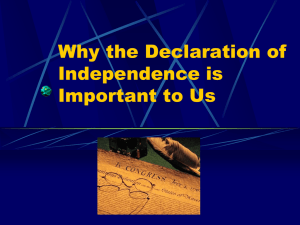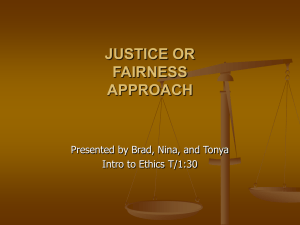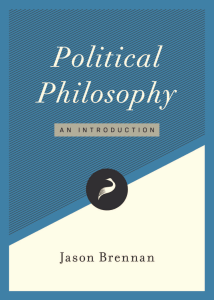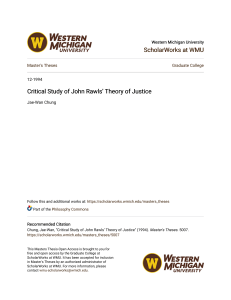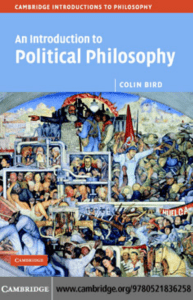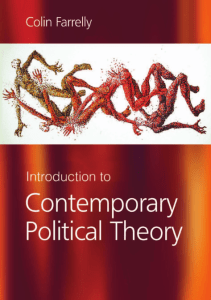Justice or Fairness approach Ethical Theories Presentation LP 5 April 9
advertisement
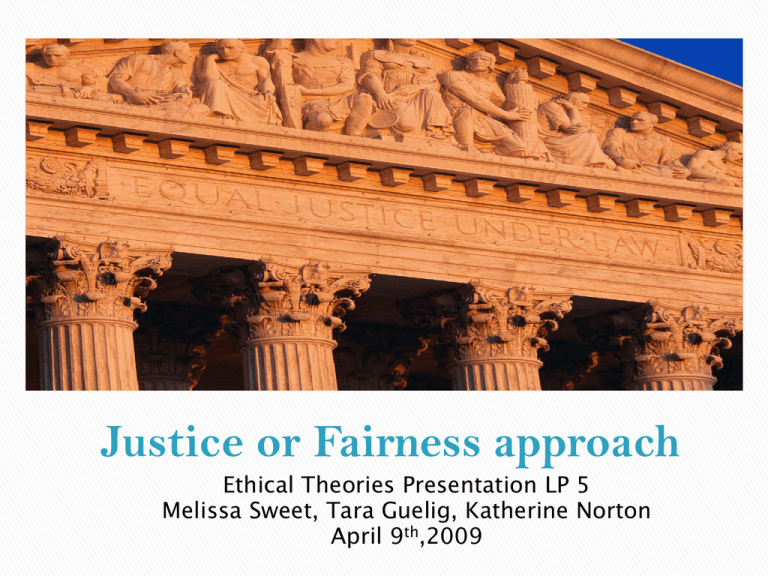
Justice or Fairness approach Ethical Theories Presentation LP 5 Melissa Sweet, Tara Guelig, Katherine Norton April 9th,2009 John Rawls (1921-2002) • A Theory of Justice, Harvard U Press, 1971. • Political Liberalism, Columbia U Press, 1993. • The Law of Peoples, Harvard U Press, 1999. Original position Position in which you are establishing an organized society Society as a whole will create a good society, one in which everyone is treated in a fair way To do this Rawls suggests that we must forget our present situation Veil of ignorance To ensure principles of justice we agree to are fair None of us know what our special circumstances are Purpose is to eliminate any prejudices based on our experiences Idea is to maintain objective point of view Two principles of justice Liberty principle Equal right to the most extensive basic liberty compatible with a similar liberty for others Basically political liberty Right to vote and be eligible for public office Freedom of speech and assembly Freedom to hold property Difference principle Social and economic inequalities are to be arranged so that they are both (a) reasonably expected to be to everyone’s advantage, and (b) attached to positions and offices open to all Social and economic arrangements In this approach, everyone should be treated fairly in every situation, no matter what they stand for and who they are, their race, culture, sex, or sexual orientation. Contributors Justice approach takes to a higher level the theory of the social contract John Locke (1588-1679) Jean Jacques Rousseau (1712-1778) Immanuel Kant (1724-1804) The heart of the idea of the social contract may be stated simply: Each of us places his person and authority under the supreme direction of the general will, and the group receives each individual as an indivisible part of the whole... ROBERT NOZICK Entitlement Theory The key aspect of Anarchy, State, and Utopia Sees humans as an ends in themselves and justifies redistribution of goods only on condition of consent. 1) 2) 3) Are all humans an ends to something ? Who chooses what is redistributed? Who’s consent is needed? John Locke His ideas had a profound influence on the Constitution of the United States and its Declaration of Independence Revolution is not only a right but an obligation. Money is non-perishable; therefore hoarding it will cause harm to no one. Aware of the problem “unlimited accumulation” causes; but does nothing. 1) What happened to Amendment 14 of the Constitution of the United States? 2) Does the Declaration of Independence mean anything? 3) If there is no money to be had; how can people afford to live? 4) Would revolution violate our 4th Amendment rights? JUSTICE OR FAIRNESS APPROACH Niger Delta COMMUNITIES/ WORLDS APART Is this fair? Nigerian Citizens Social Clash Pipelines through Communities Royal Dutch Shell first tapped its commercial oil well in the Niger Delta in 1956. US CONTRIBUTION President Bush has dispatched armed attack boats to aid President Obasanjo in his aggressive police-state tactics. http://dissidentvoice.org/200 7/08/the-niger-delta-crisis/ Poor living conditions, destroyed communities, poverty, and death are by products of Chevron oil. What fuel do you use? Questions Who is the author associated in the U.S. with "justice and fairness? What are the two principles on which Rawls bases his concept of justice and fairness? Can you name a criticism of the theory?

